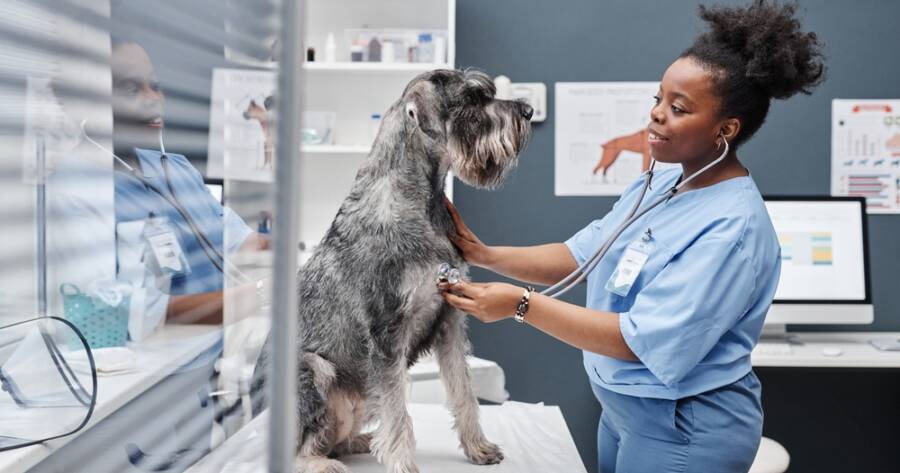Dogs can’t tell us when something is wrong, so it’s up to owners to recognize the subtle signs of illness. While obvious symptoms like limping or vomiting raise concern, other warning signs are easier to overlook. Subtle shifts in behavior, appetite, or energy levels can indicate underlying health problems. Catching these early can make all the difference in preventing serious complications. Knowing what to watch for ensures your furry companion gets the care they need before issues escalate.
Sudden Changes in Energy Levels
A sudden drop in energy could be more than just a lazy day—it might indicate an underlying health issue. If your normally active dog becomes lethargic, sleeps excessively, or shows little interest in play, it could signal anything from an infection to heart disease. Conversely, a sudden spike in energy in an older or typically calm dog may point to conditions like hyperthyroidism.
Monitor for additional signs, such as labored breathing, excessive panting, or reluctance to move. Temporary fatigue from a long walk or hot weather is normal, but persistent sluggishness should not be ignored. If your dog’s energy levels drastically shift without an obvious cause, consulting a veterinarian ensures any potential health problems are caught early.
Excessive Licking or Chewing
Dogs lick and chew their paws occasionally, but excessive, obsessive licking can indicate an issue. Allergies, skin infections, pain, or anxiety are common causes. If your dog suddenly fixates on one spot—especially paws, joints, or their belly—check for redness, swelling, or hair loss. Licking can also be a response to pain, such as arthritis or an injury, even if there’s no visible wound.
In some cases, gastrointestinal discomfort can cause a dog to lick surfaces, the air, or their lips repeatedly. If the behavior persists, a vet visit is necessary to rule out infections, parasites, or underlying health concerns. Identifying the root cause early can prevent further discomfort and stop the development of secondary infections.
Bad Breath Beyond Normal Doggy Smell
While “dog breath” is common, persistently foul or unusual odors can signal health problems. A strong fishy smell may indicate dental disease, while a sweet or fruity scent can be a sign of diabetes. A metallic or ammonia-like odor could suggest kidney disease, especially if accompanied by increased thirst or urination.
If your dog suddenly develops bad breath along with drooling, pawing at the mouth, or difficulty eating, it may be time for a dental checkup. Untreated dental infections can lead to serious systemic issues, including heart and kidney disease. Regular brushing, dental chews, and vet visits help maintain oral health. If bad breath is accompanied by other unusual symptoms, professional evaluation is necessary.
Sudden Weight Loss or Gain
Unexpected changes in weight, whether loss or gain, are often a red flag for underlying health issues. If your dog is eating normally but losing weight, conditions like diabetes, parasites, thyroid imbalances, or cancer could be at play. Sudden weight gain, especially if paired with bloating, could indicate hormonal disorders like Cushing’s disease or heart problems.
Gradual weight changes can go unnoticed, so regular weigh-ins at home or during vet visits are essential. If your dog’s ribs become more visible, or they develop an unexplained belly enlargement, take action quickly. A vet can run blood tests to pinpoint the cause, and early intervention can prevent more serious complications. Keeping track of your dog’s weight is crucial for long-term health.
Increased Thirst or Frequent Urination
If your dog suddenly drinks excessive amounts of water or has accidents in the house, it could be a sign of diabetes, kidney disease, or a urinary tract infection. Increased thirst often goes unnoticed until symptoms become severe. If your dog is emptying the water bowl faster than usual, monitor their bathroom habits.
Straining to urinate, blood in the urine, or discomfort when peeing requires immediate veterinary attention. Frequent urination combined with lethargy or appetite changes could indicate more serious conditions like Cushing’s disease. Since hydration is essential for overall health, sudden fluctuations should not be ignored. Tracking water intake and bathroom habits helps identify problems early, ensuring timely treatment and better outcomes for your pup.
Persistent Coughing or Labored Breathing
Occasional coughing isn’t unusual, but persistent coughing, wheezing, or labored breathing can signal heart disease, respiratory infections, or even lung tumors. A honking cough in small breeds like Pomeranians or Chihuahuas could indicate tracheal collapse. If coughing worsens at night or after activity, congestive heart failure might be the culprit. Shortness of breath, heavy panting at rest, or blue gums require emergency care.
Allergies, kennel cough, and pneumonia are also potential causes. If your dog’s breathing changes suddenly, keep them calm and avoid exertion until a vet evaluation is possible. Breathing issues can escalate quickly, so early detection and treatment are critical. Keeping an eye on respiratory changes helps ensure your dog stays healthy and comfortable.
Early Detection Can Save Lives
Dogs rely on their owners to recognize when something isn’t right. Subtle changes in behavior, appetite, or energy levels can be the first signs of a serious health issue. By paying close attention to these warning signs and acting quickly, you can prevent minor concerns from turning into major problems.
Regular vet checkups, a balanced diet, and daily observation help ensure your pup stays happy and healthy. When in doubt, trust your instincts—early detection can make all the difference.

